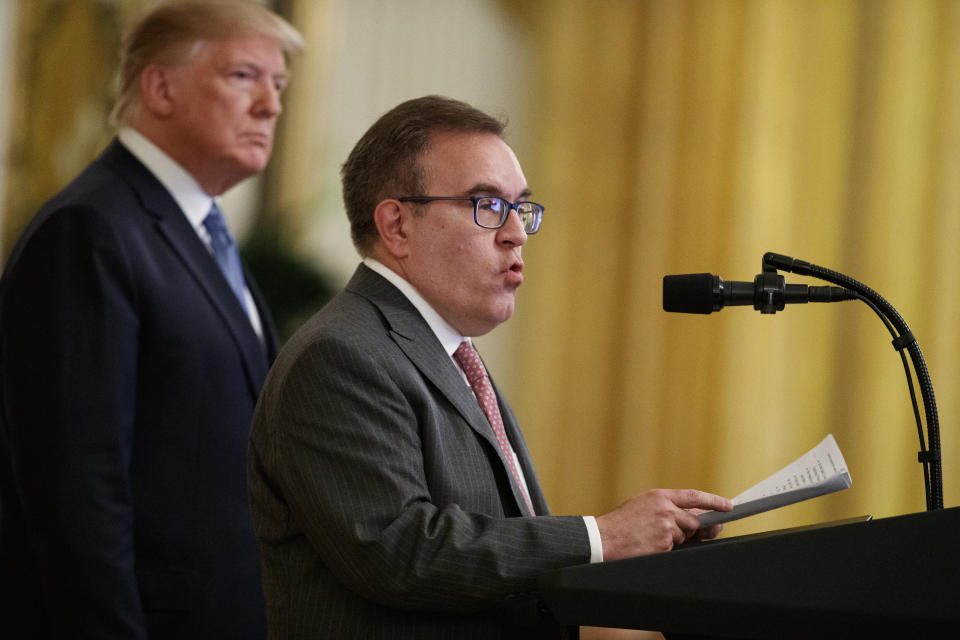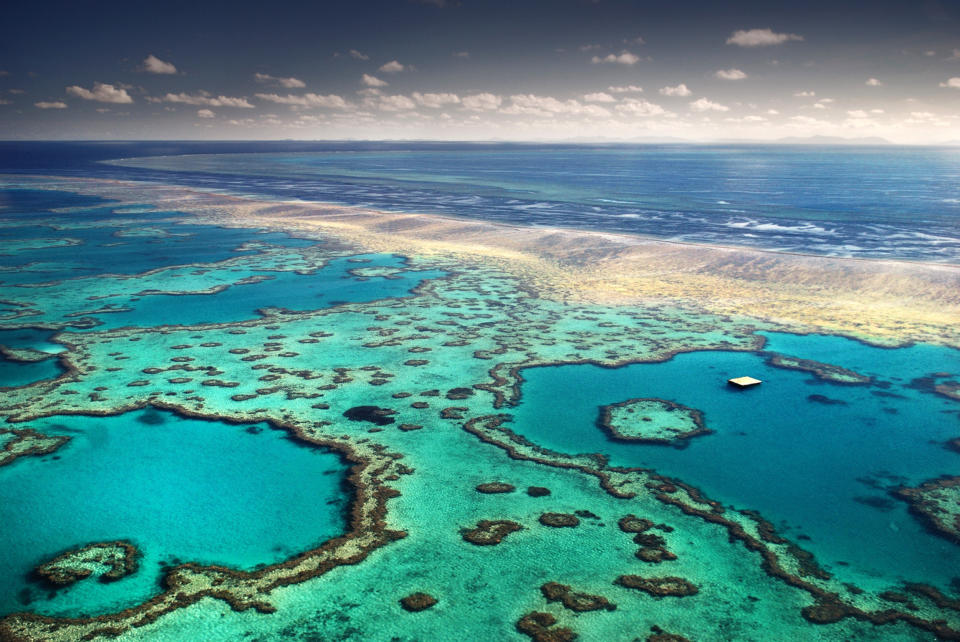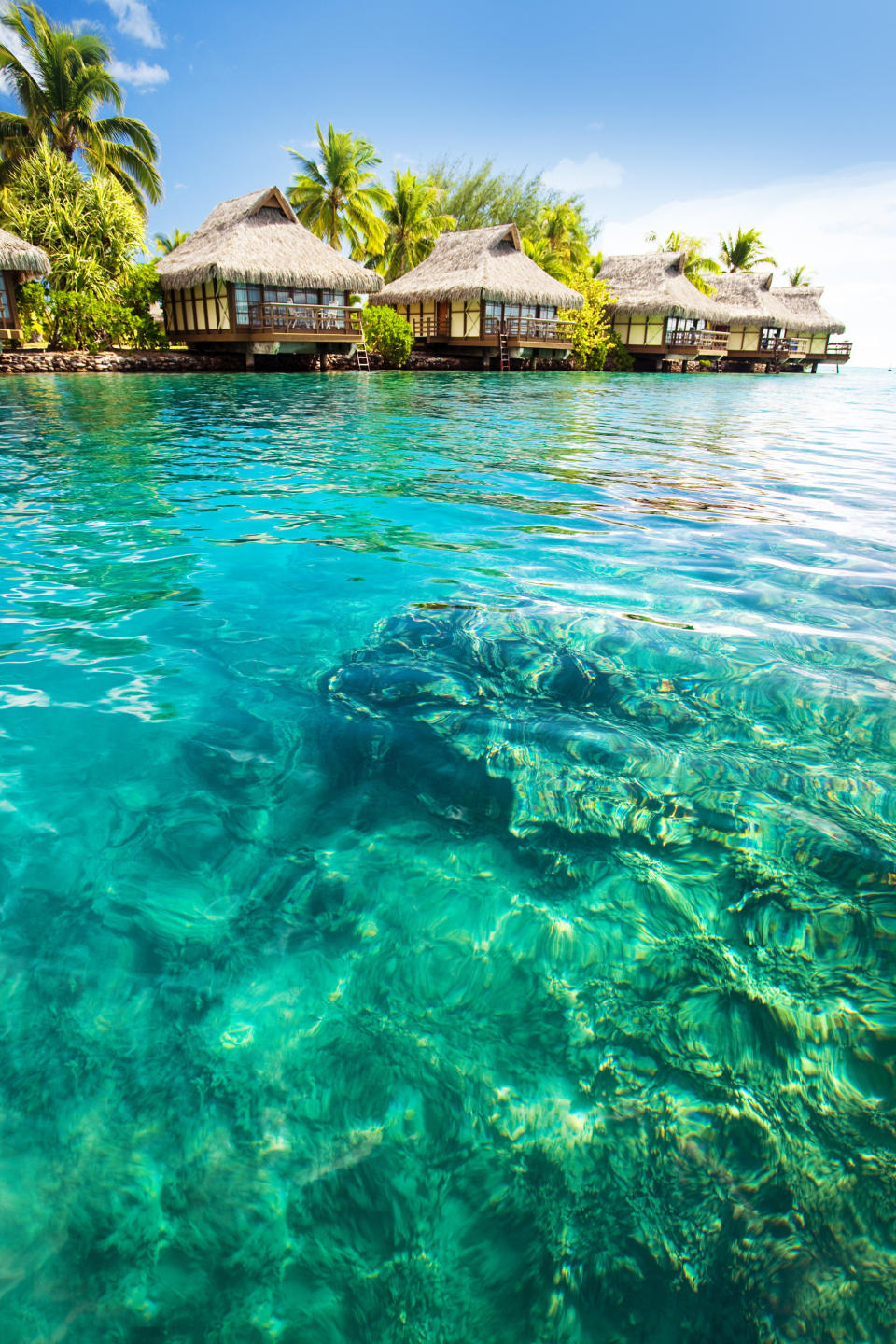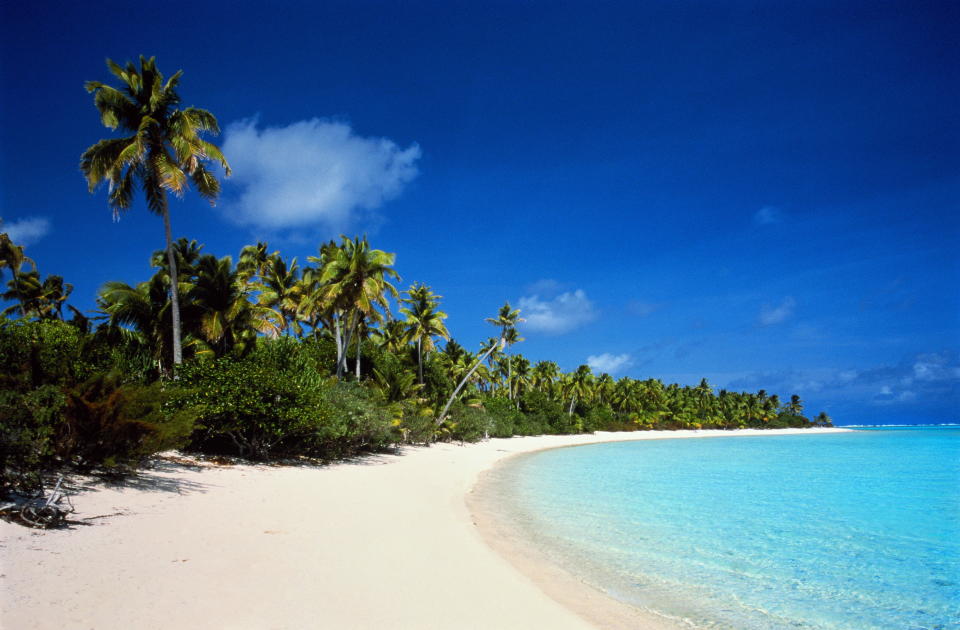EPA Chief’s Remarks Highlight Republican Double Standard On States’ Rights
For nearly a decade, Republicans crusaded against former President Barack Obama’s environmental regulations. In lawsuit after lawsuit, GOP attorneys general claimed states had a constitutional right to set weaker standards, if that’s what they wanted, and that it superseded the public health benefits of federal rules cutting pollution.
The inverse, apparently, isn’t true.
On Wednesday, Environmental Protection Agency Administrator Andrew Wheeler defended the Trump administration’s effort to limit states’ ability to enact stricter rules to curb pollution, particularly planet-heating emissions.
“States don’t always do the appropriate thing,” Wheeler said at a conference at the conservative Heritage Foundation.
Those states, he said, just happen to be deep-blue California and New York.
Last August, the Trump administration proposed revoking the Golden State’s right to set stricter limits on tailpipe emissions. It challenged, for the first time, a provision of the Clean Air Act that gives special autonomy to smog-choked California. The move is part of an effort to reverse Obama-era fuel economy rules at the behest of oil companies and to prevent automakers from having to manufacture vehicles with different standards depending on the state.
In June, the EPA issued a new legal guidance that seeks to restrain states that want to deny gas and oil pipeline permits under a specific provision of the Clean Water Act. The guidance came a month after New York Gov. Andrew Cuomo (D) rejected a water quality permit and temporarily halted construction of the controversial Williams Pipeline, a conduit to carry natural gas from Pennsylvania to the New York City area.
Wheeler called the denial “the worst environmental decision by an elected official over the last year.”

“What he’s doing is he’s saying he’s vetoing these projects,” Wheeler said, adding that Cuomo’s action “is because of climate change and [because] he doesn’t want the fossil fuels to be used.” Blocking the project does little to curb fossil fuel use, he said, and instead forces utilities in the region to import natural gas from Russia.
Wheeler added that federalism “does not mean that one state can dictate national standards or decisions.”
“We can’t allow states like California on [fuel economy standards], or New York on vetoing these pipelines, to continue at the expense of the other states in the country,” he said. “We will step in when we need to.”
Wheeler made the remarks just days after The New York Times reported the EPA plans to eliminate a rule that allows individuals or community groups to contest agency-issued pollution permits to a panel of judges. Early in his tenure, during a meeting with governors, President Donald Trump asserted that “we need to make states the laboratories of democracy once again.”
“I call it fickle federalism,” said Elizabeth Klein, deputy director at NYU School of Law’s State Energy & Environmental Impact Center. She accused the administration of “trying to control what states are doing, yanking the floor for environmental protections out from under the states.”
“Whatever it is,” Klein, a former associate deputy secretary at the Department of the Interior, said, “it’s not federalism.”
Where Klein sees “hypocrisy,” some conservatives see nuance. In a HuffPost interview last year, Heritage Foundation fellow Nick Loris called California’s Clean Air Act waiver “a mangled form of federalism,” making the libertarian case for a system where all states set their own standards and competed for the best economic outcomes.
“What makes this so complicated is that California is the only state that gets to set its own standard, and they can only go higher,” Loris said at the time, referring to emissions restrictions. This means “states like Texas can’t go lower if they believe the federal standard is too stringent,” he added. “This form of federalism is not a real true definition of what federalism should look like.”
A Racist Dog Whistle
But there’s more to modern conservatism’s dogmatic approach to states’ rights than an absolutist belief in markets’ hallowed wisdom. As explicit racism became increasingly taboo in the U.S. throughout the 20th century, segregationists championed “states’ rights” as a proxy. The problem, the argument went, wasn’t policies to racially integrate schools and communities ― it was the way the federal government forced states to enact those policies. The same logic allowed a generation of revisionist historians to recast the Civil War as a conflict over states’ rights rather than slavery, despite records showing Confederate states unambiguously declared independence to preserve white supremacy.
In 1970, when former President Richard Nixon sought to revive the Republican Party’s electoral fortunes in the South by appealing to racist white voters who felt spurned by Democrats’ embrace of civil rights, he did so under the guise of states’ rights. A decade later, when former President Ronald Reagan gave a presidential campaign speech at the Neshoba County Fair, in an infamous Ku Klux Klan stronghold in Mississippi, he famously told the cheering crowd: “I believe in states’ rights.”
The argument isn’t the purview of Republicans alone. During the first round of Democratic presidential debates last month, former Vice President Joe Biden defended his past opposition to integrating public schools by busing students from black communities to schools in mostly-white areas and vice versa by claiming he simply opposing busing as a federal mandate. “I did not oppose busing in America. What I opposed was busing ordered by the Department of Education ― that’s what I opposed,” Biden said.
States’ rights arguments are once again being used to scale back voting protections, amounting to what Dissent magazine dubbed “laundering racism.” But if states’ rights were once a thin euphemism for segregation, the two-word phrase now also serves as a stand-in for industrial deregulation. But disturbing parallels remain between the two.
A landmark EPA study published last year found that black Americans, on average, are exposed to 1.54 times more PM2.5 than the general population. The particulate matter, with diameters that are generally 2.5 micrometers and smaller, is among the most harmful air pollution. The fine-grained particles wedge themselves into the lungs and increase the likelihood of cancer. Black people breathe air that is 38% more polluted than the air their white compatriots are exposed to, an NAACP report found last year, and they are 75% more likely to live in neighborhoods abutting industrial sites.
Chris D’Angelo contributed reporting from Washington.
Love HuffPost? Become a founding member of HuffPost Plus today.
Related Coverage
Trump’s Assault On Auto Pollution Rules Is The Latest Salvo In A War On States’ Rights
EPA Air Chief Bill Wehrum Abruptly Departs Amid Ethics Probe
Bush's EPA Chief Slams Trump's Environment Speech: 'He's Living In His Own Reality'
Also on HuffPost
Alaska

Venice

Antarctica

The Great Barrier Reef

The Himalayas

The Maldives

The Alps

The Arctic

Micronesia and Polynesia

This article originally appeared on HuffPost.

